
The Ukrainian Institute London has been offering Ukrainian language classes for over 30 years.

Our language classes include a combination of speaking, reading, listening, and writing.

Our language instructors all have extensive experience of teaching Ukrainian as a foreign language.

While leaning Ukrainian with us, you will find out about Ukrainian society, culture, and traditions.
This course is for beginners, with no previous knowledge of Ukrainian. More information can be found here.
If you wish to join a course, please complete and submit this online registration form, then either pay the fees by emailing Oksana Popova ([email protected]). A place on the course will be confirmed upon receipt of full payment.
– establish knowledge of Ukrainian language and grammar,
– lay the foundation for further study of the Ukrainian language,
– focus in particular on the practical use of the language in everyday situations,
– cover reading, writing, listening, and speaking skills, with a greater focus on speaking practice,
– learn about Ukraine’s culture in a short period of time.
Beginners’ Ukrainian is designed for learners with little or no previous knowledge of Ukrainian or any other Slavonic language. The course aims to introduce essential grammar and basic vocabulary, provide the necessary skills to access simple written and oral materials, and introduce learners to Ukrainian culture. This course lays a foundation for further study of the Ukrainian language and runs over three terms
The aim of the course is to:
– introduce essential grammar and basic vocabulary,
– provide the necessary skills to access simple written and oral materials,
– introduce learners to Ukrainian culture,
– lay a foundation for further study of the Ukrainian language.
Topics: alphabet and pronunciation, greetings, my family, professions and occupations, international words, character, sport and facilities, parts of the body, pets, living places, cultural and educational institutions, social places and shops, religious buildings, parts of the city, natural sites, directions, celebrations and wishes, time, age, weather, presents.
Functions: introducing oneself and introducing others, describing your family, home, and place where you come from, nationalities, describing one’s hobbies and character, understanding numbers and address (prices, telephone, flat, floor), conducting dialogues about locations (living places, educational and cultural institutions, social places, and shops), understanding time expressions, talking about weather, understanding wishings, describing a simple recipe, understanding directions, talking about daily routines.
Grammar: nouns, plural forms, gender and cases, verbs in present, past, future tense, adjectives, numerals, personal pronouns and possessive pronouns, simple adverbs, positive and negative sentences with ‘to be’, verbs in I and II conjugations, infinitives.
Course materials: Burak M. Yabluko, Yabluko Elementary Ukrainian (Lviv: Publishing House of Ukrainian Catholic University, 2015).
ISBN 978-966-2778-37-3
Additional resources:
Online classes:
Tuesday evenings
Thursday evenings
In-person classes:
Monday evenings (Holland Park, and Paddington)
Wednesday evenings (Paddington)
If you are a complete beginner, you do not need to be assessed prior to enrolment. Please complete the online enrolment form, then contact Oksana Popova ([email protected]) to arrange your payment of course fees.
This course is designed for learners with little or no previous knowledge of Ukrainian or any other Slavonic language. By meeting twice a week, students will have the opportunity to absorb new material at a comfortable pace, consolidate their learning, and practice more regularly, which can lead to quicker progress. The more frequent classes provide a balance of learning and review, helping you build confidence in your Ukrainian language skills faster. With a steady pace of exposure and interaction, you’ll have the chance to revisit and reinforce key concepts, ensuring that each new lesson is grounded in what you’ve already learned.
The course introduces essential grammar, builds basic vocabulary, and provides the necessary skills to access simple written and oral materials, while also giving you a deeper understanding of Ukrainian culture. Whether you’re aiming to develop a solid foundation for future study or just wanting to communicate more effectively, this course offers the flexibility to learn quickly while reinforcing your knowledge through regular practice.
The aim of the course is to:
– Introduce essential grammar and basic vocabulary
– Provide the necessary skills to access simple written and oral materials
– Introduce learners to Ukrainian culture
– Lay a foundation for further study of the Ukrainian language
Why Choose Twice a Week?
– Faster Progress: More frequent lessons allow you to learn and practice more consistently, which helps you retain new material better and progress faster.
– Regular Practice: With two classes each week, you’ll have more opportunities to apply what you’ve learned in different contexts, reinforcing your skills and boosting your confidence.
– Consolidation: With less time between lessons, you’ll have the chance to quickly revisit and solidify what you’ve learned in the previous class. This ongoing review helps keep your skills fresh and strengthens your understanding.
– Motivation and Structure: The twice-weekly format offers more frequent feedback and keeps you engaged, maintaining momentum and ensuring you stay on track.
Course Content:
Topics:
– Alphabet and pronunciation
– Greetings
– My family
– Professions and occupations
– International words
– Character
– Sport and facilities
– Parts of the body
– Pets
– Living places
– Cultural and educational institutions
– Social places and shops
– Religious buildings
– Parts of the city
– Natural sites
– Directions
– Celebrations and wishes
– Time
– Age
– Weather
– Presents
Functions:
– Introducing oneself and others
– Describing your family, home, and place of origin
– Discussing nationalities
– Talking about hobbies and character
– Understanding numbers and addresses (prices, telephone, flat, floor)
– Conducting dialogues about locations (living places, educational and cultural institutions, social places, and shops)
– Understanding time expressions
Talking about the weather
– Making and understanding wishes
– Describing simple recipes
– Understanding directions
– Talking about daily routines
Grammar:
– Nouns, plural forms, gender, and cases
– Verbs in present, past, and future tense
– Adjectives
– Numerals
– Personal and possessive pronouns
– Simple adverbs
Positive and negative sentences with ‘to be’
– Verbs in I and II conjugations
Infinitives
Course materials: Burak M. Yabluko, Yabluko Elementary Ukrainian (Lviv: Publishing House of Ukrainian Catholic University, 2015).
ISBN 978-966-2778-37-3
Additional resources:
Online classes: 90-minute lessons, twice a week, on Monday and Thursday evenings (subject to demand).
If you are a complete beginner, you do not need to be assessed prior to enrolment. Please complete the online enrolment form, then contact Oksana Popova ([email protected]) to arrange your payment of course fees.
Upper beginners’ Ukrainian is a continuation for learners who have successfully completed three terms of the Beginners’ course or possess equivalent knowledge of Ukrainian. The course runs over three terms and is designed to offer a deeper understanding of grammar and expand students’ vocabulary across various topics.
The aim of the course is to:
– introduce essential grammar and basic vocabulary,
– provide the necessary skills to access simple written and oral materials,
– introduce learners to Ukrainian culture,
– lay a foundation for further study of the Ukrainian language.
Topics: personal information, family and people outside the family, countries, languages and nationalities, jobs, occupation and status, work places, epithets, appearance, character, clothes, booking a room in a hotel, parts of buildings, furniture and interior, directions, transport and transportation, renting a home and giving a home for a rent, time and routines, food in Ukraine, shopping, weight and volume, everyday objects, buying groceries, healthy and unhealthy foods, library, working hours, days of the week, weekend and holidays, seasons, Ukrainian souvenirs, hobbies and interests, leisure time activities, national and religious holidays, celebrations, school and university, parts of the world, customs and traditions, metaphors, internet and media, illness and sickness, doctors appointment, pharmacy.
Skills: recognise and understand common phrases, vocabulary, and short messages related to everyday life scenarios. Determining the main topics and purposes of various texts and messages. Developing efficient communication abilities, including expressing reasons and requests politely in writing, describing personal appearance and preferences. Gaining competence in writing short biographies, composing messages for different purposes. Maintaining written correspondence, using strategies like skimming and scanning to comprehend texts efficiently. Engaging confidently in spoken communication, narrating simple stories, expressing opinions, and participating in dialogues on familiar topics. Demonstrating the ability to initiate conversations, ask and answer questions, and seek and provide information in real-life situations.
Grammar: declensions, consonant and vowel alternations, future imperfective tense, imperatives, imperfective and perfective verb aspects, future perfective tense, numerals, degrees of comparison, cases usage, modal auxiliary verbs, conjunctions, punctuation.
Course materials: Burak M. Yabluko, Yabluko Elementary Ukrainian (Lviv: Publishing House of Ukrainian Catholic University, 2015).
ISBN 978-966-2778-37-3
Additional resources:
Online classes:
Monday evenings
Tuesday evnings
Wednesday evenings
Please complete the online enrolment form, then contact Oksana Popova ([email protected]) to arrange a placement test.
Early intermediate Ukrainian. Classes take place once a week.
The aim of the course is to:
– expand understanding of Ukrainian grammar and vocabulary,
– develop understanding of the spoken language,
– enhance ability to access oral and written materials of an intermediate level,
– develop understanding of Ukrainian culture,
– enable further study of the Ukrainian language.
Where possible, the course will be tailored to suit learners’ requirements.
Topics: countries in the world, travelling, shopping, music, hobbies, books, future plans, gifts, holidays and vacations, gardens and gardening, traditions of different countries, art, cities and towns.
Skills: recognise and understand a broader range of phrases, vocabulary, and longer messages related to every day and more complex life scenarios. Identify the main topics, details, and purposes of various texts and messages, including short articles, announcements, and personal correspondence. Develop and enhance communication abilities, including giving detailed reasons and making polite requests in writing and speech. Describe personal appearance, preferences, experiences, and future plans. Engage confidently in spoken communication, narrating longer stories, expressing opinions, and participating in more complex dialogues on familiar and unfamiliar topics. Demonstrate the ability to initiate and sustain conversations, ask and answer more complex questions, and seek and provide detailed information in real-life situations. Gain competence in composing messages for various purposes, and creating short essays and reports on familiar topics. Maintain written correspondence, using more advanced strategies to structure and organise content effectively. Write coherent and cohesive texts, incorporating a variety of sentence structures and linking words to enhance clarity and flow.
Grammar: comparisons of adjectives, superlatives of adjectives, using prefixes, comparisons and superlatives, conditional sentences, endings of nouns and adjectives in different cases.
Course materials: Burak M. Yabluko, Yabluko Elementary Ukrainian (Lviv: Publishing House of Ukrainian Catholic University, 2015).
ISBN 978-966-2778-37-3
Additional resources:
Online classes: Wednesday evenings.
Please complete the online enrolment form, then contact Oksana Popova ([email protected]) to arrange a placement test.
The course is for those who have successfully completed the Early intermediate Ukrainian course, or who possess equivalent knowledge of Ukrainian. Classes take place once a week.
Online classes:
Please complete the online enrolment form, then contact Oksana Popova ([email protected]) to arrange a placement test.
– extend knowledge base of Ukrainian grammar and vocabulary,
– enable learners to develop more confident oral communication in Ukrainian for everyday life situations,
– assist learners in accessing written texts of an upper intermediate level of difficulty,
– enhance understanding of the spoken language,
– assist learners in obtaining a more focused knowledge and understanding of the history, culture and everyday life of Ukraine,
– enable further study of the Ukrainian language at an advanced level.
The course is for those who have successfully completed the Early intermediate Ukrainian course, or who possess equivalent knowledge of Ukrainian. Classes take place once a week.
Online classes: Friday evenings, 90- or 120-minute lessons.
Please complete the online enrolment form, then contact Oksana Popova ([email protected]) to arrange a placement test.
– extend knowledge base of Ukrainian grammar and vocabulary,
– enable learners to develop more confident oral communication in Ukrainian for everyday life situations,
– assist learners in accessing written texts of an upper intermediate level of difficulty,
– enhance understanding of the spoken language,
– assist learners in obtaining a more focused knowledge and understanding of the history, culture and everyday life of Ukraine,
– enable further study of the Ukrainian language at an advanced level.
Are you a fluent speaker of a Slavonic language? Do you understand Ukrainian well, but find it hard to express yourself?
This course is designed for native or fluent speakers of another Slavonic language (e.g. Russian, Polish). Students will learn the grammar differences between Ukrainian and the Slavonic language that they already know, gain new vocabulary as well as practise their pronunciation and conversational skills. Classes take place once a week.
Online classes:
– Beginners:
Monday evenings
Thursday evenings
Saturday mornings
– Upper Beginners:
Monday evenings
Tuesday evenings
– Intermediate:
Wednesday evenings
Thursday evenings
– clarify Ukrainian grammar and syntax in comparison to other Slavonic languages
– strengthen your writing skills
– expand your knowledge about Ukrainian literature and culture
If you are a complete beginner, you do not need to be assessed prior to enrolment. Please complete the online enrolment form and then email Oksana Popova ([email protected]) to arrange the payment of your course fees.
If you studied Ukrainian before, please contact Oksana Popova ([email protected]) for a placement test to be arranged prior to enrolment.
Are you a fluent speaker of a Slavonic language? Do you understand Ukrainian well, but find it hard to express yourself?
This course is designed for native or fluent speakers of another Slavonic language (e.g. Russian, Polish). Students will learn the grammar differences between Ukrainian and the Slavonic language that they already know, gain new vocabulary as well as practise their pronunciation and conversational skills.
By meeting twice a week, students will have the opportunity to absorb new material at a comfortable pace, consolidate their learning, and practice more regularly, which can lead to quicker progress. The more frequent classes provide a balance of learning and review, helping you build confidence in your Ukrainian language skills faster. With a steady pace of exposure and interaction, you’ll have the chance to revisit and reinforce key concepts, ensuring that each new lesson is grounded in what you’ve already learned.
Online classes: 90-minute lessons, twice a week, on Monday and Thursday/Friday evenings (subject to demand).
Why Choose Twice a Week?
– Faster Progress: More frequent lessons allow you to learn and practice more consistently, which helps you retain new material better and progress faster.
– Regular Practice: With two classes each week, you’ll have more opportunities to apply what you’ve learned in different contexts, reinforcing your skills and boosting your confidence.
– Consolidation: With less time between lessons, you’ll have the chance to quickly revisit and solidify what you’ve learned in the previous class. This ongoing review helps keep your skills fresh and strengthens your understanding.
– Motivation and Structure: The twice-weekly format offers more frequent feedback and keeps you engaged, maintaining momentum and ensuring you stay on track.
– clarify Ukrainian grammar and syntax in comparison to other Slavonic languages
– strengthen your writing skills
– expand your knowledge about Ukrainian literature and culture
If you are a complete beginner, you do not need to be assessed prior to enrolment. Please complete the online enrolment form and then email Oksana Popova ([email protected]) to arrange the payment of your course fees.
If you studied Ukrainian before, please contact Oksana Popova ([email protected]) for a placement test to be arranged prior to enrolment.
Were you brought up speaking Ukrainian? Do you speak Ukrainian vdoma (at home) to your mama i tato or maybe baba i dido? Do you understand Ukrainian but don’t always understand how the language functions?
This course is for people who have acquired their knowledge of Ukrainian through their families, community schools or who spent a lot of time in a Ukrainian-speaking environment; for those who might have learned the language as children, but who might not have studied it formally. Classes take place once a week.
Online classes: Monday evenings.
– build on existing ability with Ukrainian grammar and syntax
– strengthen your writing skills
– expand your knowledge about Ukrainian literature and culture
If you are a complete beginner, you do not need to be assessed prior to enrolment. Please complete the online enrolment form and then email Oksana Popova ([email protected]) to arrange the payment of your course fees.
If you studied Ukrainian before, please contact Oksana Popova ([email protected]) for a placement test to be arranged prior to enrolment
We run three terms each year and you can enrol at the start of each term. The duration of each term is 12 weeks.
Winter Term 20 January 2025 – 13 April 2025
Spring Term 12 May 2025 – 3 July 2025
Enrolment for the spring term is open.
Please email Oksana Popova ([email protected]) to confirm your re-enrolment and pay the course fees. Returning students are automatically re-enrolled into their current class for the next academic year, subject to any changes to availability and a minimum number of students required in a group.
Please complete the online registration form, and then email Oksana Popova ([email protected]) to arrange a placement test if needed, and to pay the course fees. A place on the course will be confirmed upon receipt of full payment.
How long are your courses?
Each course is 12 lessons delivered over 12 weeks.
How long are the lessons?
Most lessons run for 90 minutes. Some last 120 minutes.
Where do the lessons take place?
Lessons happen online as well as in person in Paddington and Holland Park locations.
What time do lessons start?
Lessons for the evening courses start at 6.30/7pm, depending on students’ preferences.
On what days of the week do lessons happen?
Different courses are taught on different days — see the timetable for your level.
How big are the classes?
Both in-person and online classes are limited to eight students.
I have missed the beginning of the term. Can I still enrol?
If you have missed the start of the course (1–2 initial lessons) you can still enrol, provided you go through the materials and homework by yourself so that you do not slow down the other students.
Which course is best for my ability?
Each course describes the syllabus and difficulty, to guide your choice. To determine your level, we offer a placement test. It is possible to have an assessment call with a teacher, or try groups with differing levels.
What if I enrol in the wrong level?
You can normally move levels before the second or third lessons if they are too straightforward or too challenging (availability permitting — remember we may not be able to offer all levels in every term). Please contact the school manager if you feel the level is not working for you. Please note that moving groups will involve a change of schedule.
What sort of things will I learn?
General course content is outlined on the Language School page.
What textbooks do you use?
Courses use a variety of sources. ‘Yabluko’ textbooks are the most popular ones. Students can purchase them, although it is not essential as copies of the materials will be provided.
Do your courses include a final exam?
For the benefit of students, there is an unofficial test at the end of a course to indicate the progress they have made.
Who will teach my course?
All of our courses are taught by native speakers who are experienced, professionally qualified language teachers.
Will I keep the same teacher through the course?
We can usually make certain that one teacher takes a single course. However, we reserve the right to replace a teacher if obliged.
What kinds of people take your courses?
With or without professional or familial backgrounds in Ukraine, our courses are a lively mix of professionals, retired people, and students.
What if I have to miss a lesson?
If you know that you are going to miss a lesson, we would be grateful if you could inform your teacher in advance. Your homework will be either e-mailed to you after the class. You can also access the recording of the online lessons.
How much homework will I have?
We have found that our students spend anywhere between 45 and 120 minutes a week working on their language skills outside the classroom. There will be some essential homework as well as additional homework for students who have more time to practise. The more you practise between lessons, the faster you will progress!
Will I get a qualification if I complete the course?
Our language courses are non-accredited. However, all our syllabi follow the government’s standards for learning Ukrainian as a foreign language. Students who attend more than 70% of lessons in a term are eligible for course completion certificates.
Can I attend some lessons in person and some online?
No, we offer either in-person or online classes.
Can I join another group’s lesson, if I miss one, as a replacement lesson?
Unfortunately, this is not feasible, as although groups follow the same syllabus, what is taught in a class on a given day will differ depending on the abilities of the group and their pace of learning.
Do you teach under 16s?
No, all classes are for students 16 years and older. In groups of adult learners, young students often find it difficult to make friends and to feel comfortable.
Do you offer discounts?
Friends, Benefactors, and Student Members of the UIL enjoy a ten percent discount. Booking three terms at once also yields a discount.
Can I reserve a place?
Your place is reserved upon receipt of the full payment.

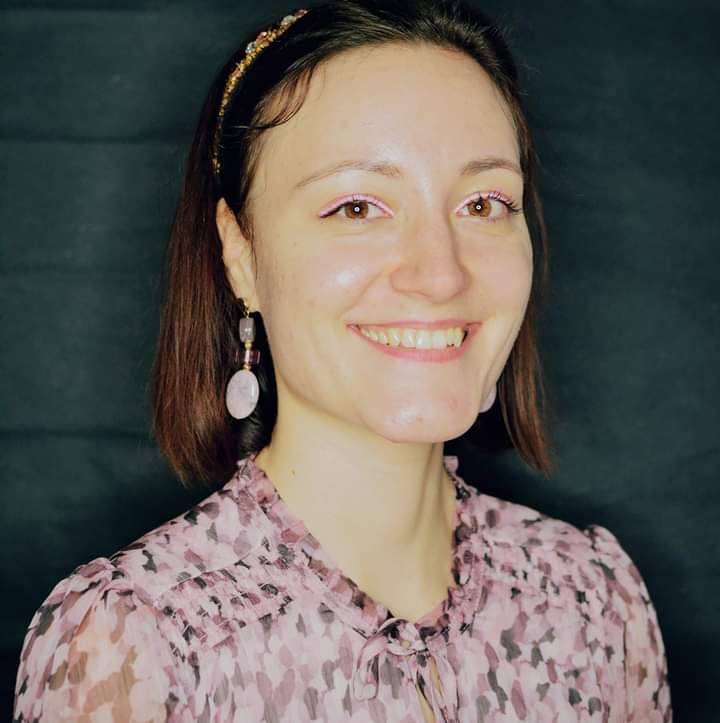


Dr Alex Krouglov completed his MA in Translation and Interpreting and PhD in Sociolinguistics at Taras Shevchenko National University in Kyiv where he taught Translation and Interpreting. Alex currently works as a Professor (Teaching) at the School of Slavonic and East European Studies, University College London (UCL). His research focuses on the issues of language planning primarily in Ukraine, and other countries of Eastern Europe. His research interests also include Translation and Interpreting, and topics related to Higher Education since Alex has been engaged in numerous projects in the field of Higher Education in Uzbekistan and Tajikistan. Before joining UCL, Alex worked as an Associate Dean and taught Simultaneous and Consecutive Interpreting at London Metropolitan University, after 9 years of looking after diplomatic language training at the Foreign &
Commonwealth Office in London.

Olha Lupuliak obtained her MA in English Linguistics and Literature from the National Pedagogical Drahomanov University in Kyiv, Ukraine, and subsequently completed another MA in Comparative Education at University College London. With teaching experience dating back to 2011, she has taught in various locations, including Ukraine, Hungary, China, and the UK. In 2018, Olha established her own language school named A+ in Ukraine, which operated successfully until 2022. A+ offered courses in different languages for all age groups and provided free classes for disadvantaged families. Olha regularly conducted online Speaking Clubs for people from around the world who aimed to enhance their language skills.
Starting in 2022, Olha has been actively involved as a volunteer, assisting displaced Ukrainians. She also holds positions as an English and Ukrainian teacher at the Ukrainian Institute London. Currently, she is immersed in her dissertation work, which focuses on the revitalization of Ukraine’s education system during and after the war against Ukraine. Additionally, she is concentrating on educational provisions for learners who are refugees.

Inna Lynchak was born in Kyiv, Ukraine. She is a graduate of Taras Shevchenko National University of Kyiv, PhD in Philology, Associate Professor. She has been teaching Ukrainian since 2003, and for the past five years has taught foreign students, both as a private tutor and at Taras Shevchenko National University of Kyiv, where she worked with foreign medical students.
Inna Lynchak has a number of publications on methods of teaching Ukrainian as a foreign language, lexicology of professional speech and folklore. She is a co-author of the textbook “Ukrainian Language (for Professional Purposes)” and the editor of the collection “Tourism and Tourists in Anecdotes”.




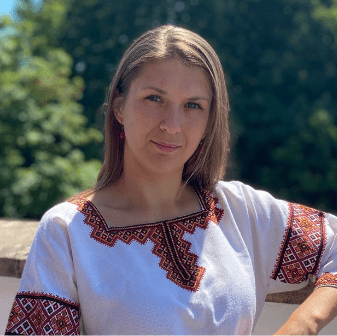

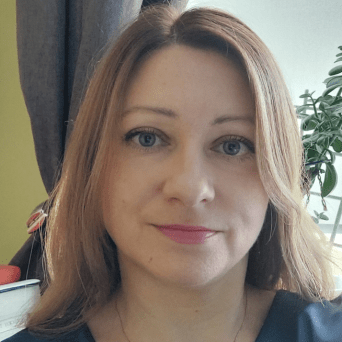
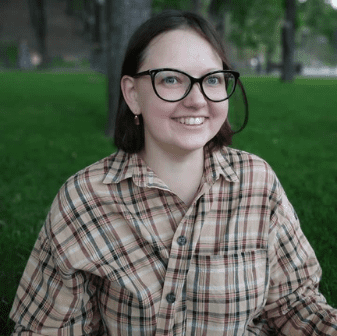
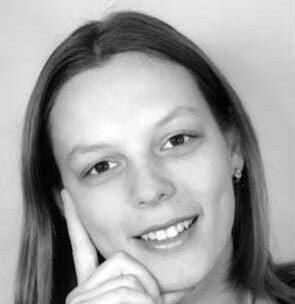
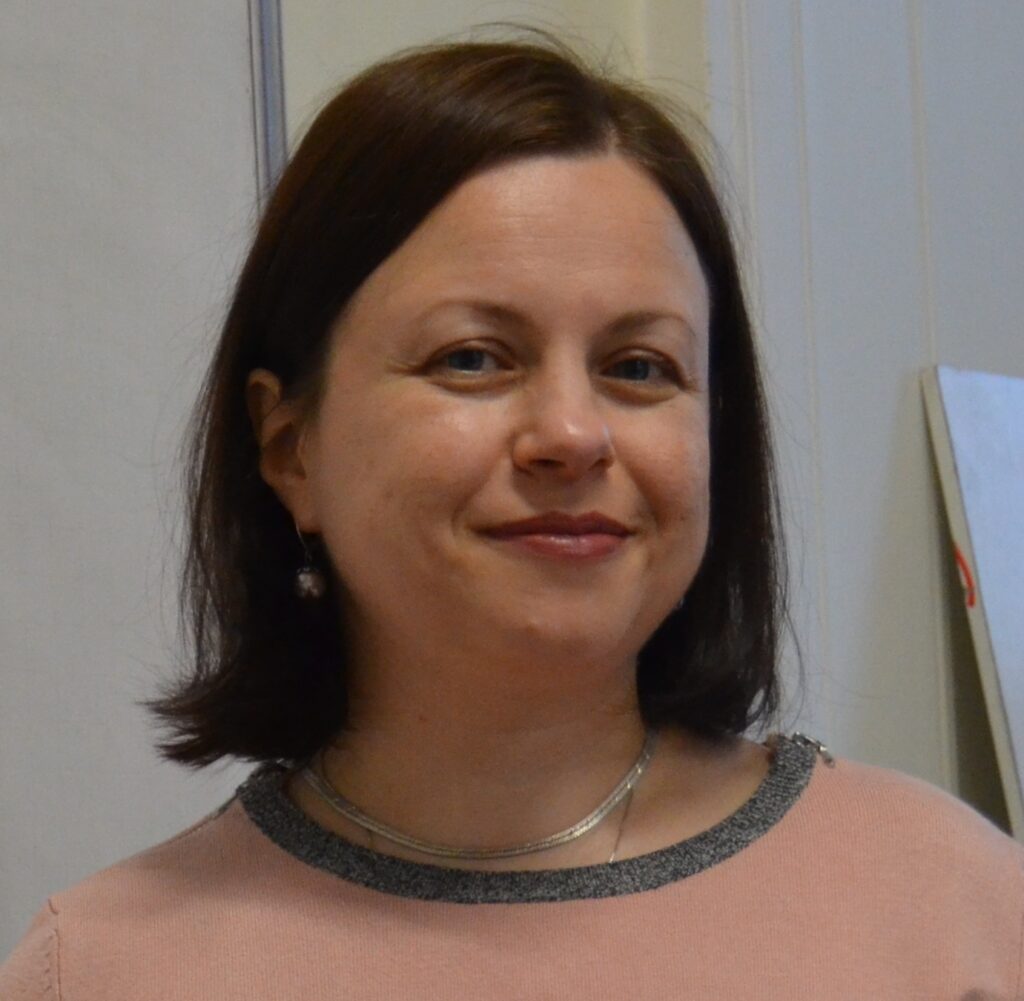



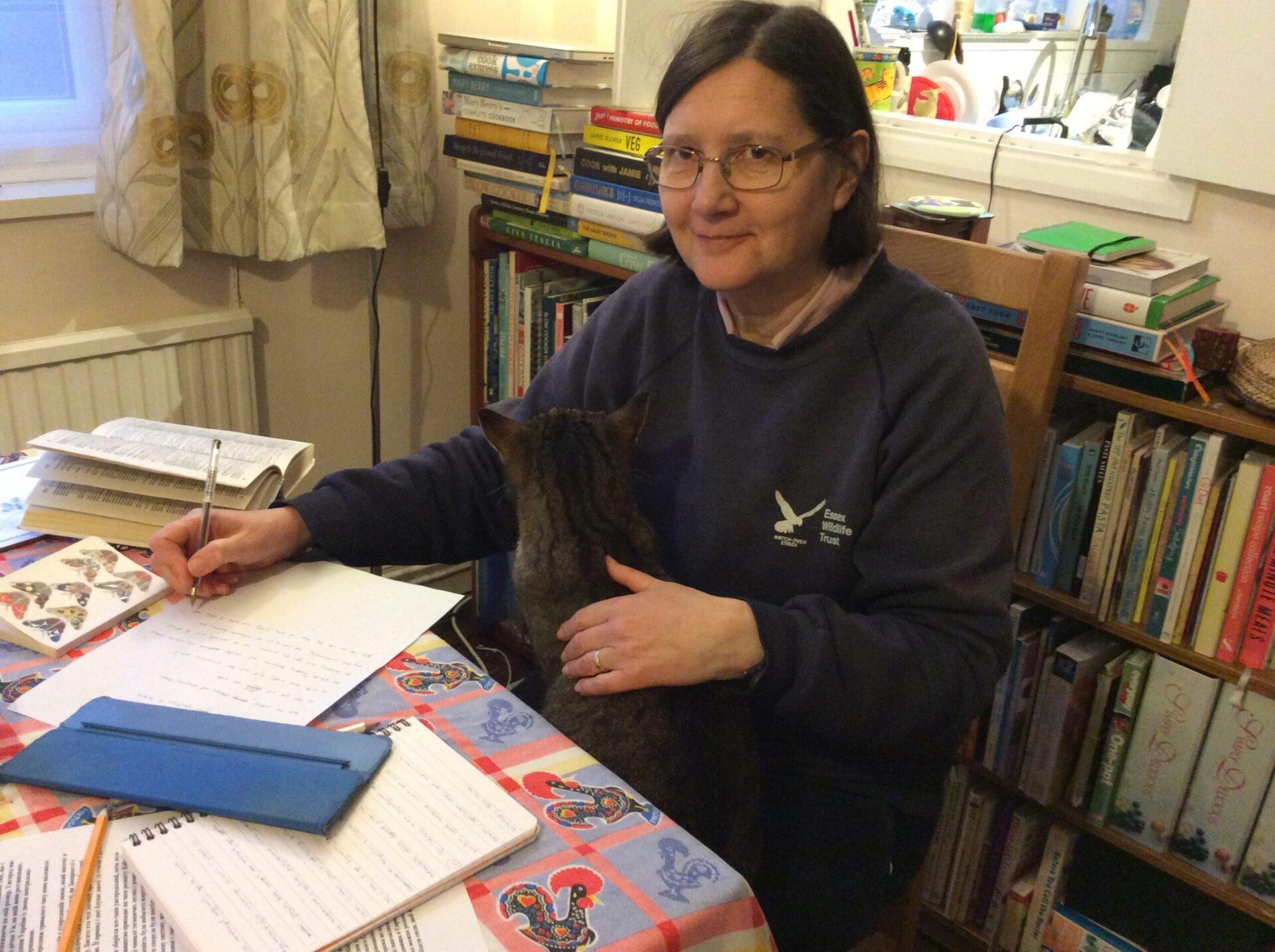


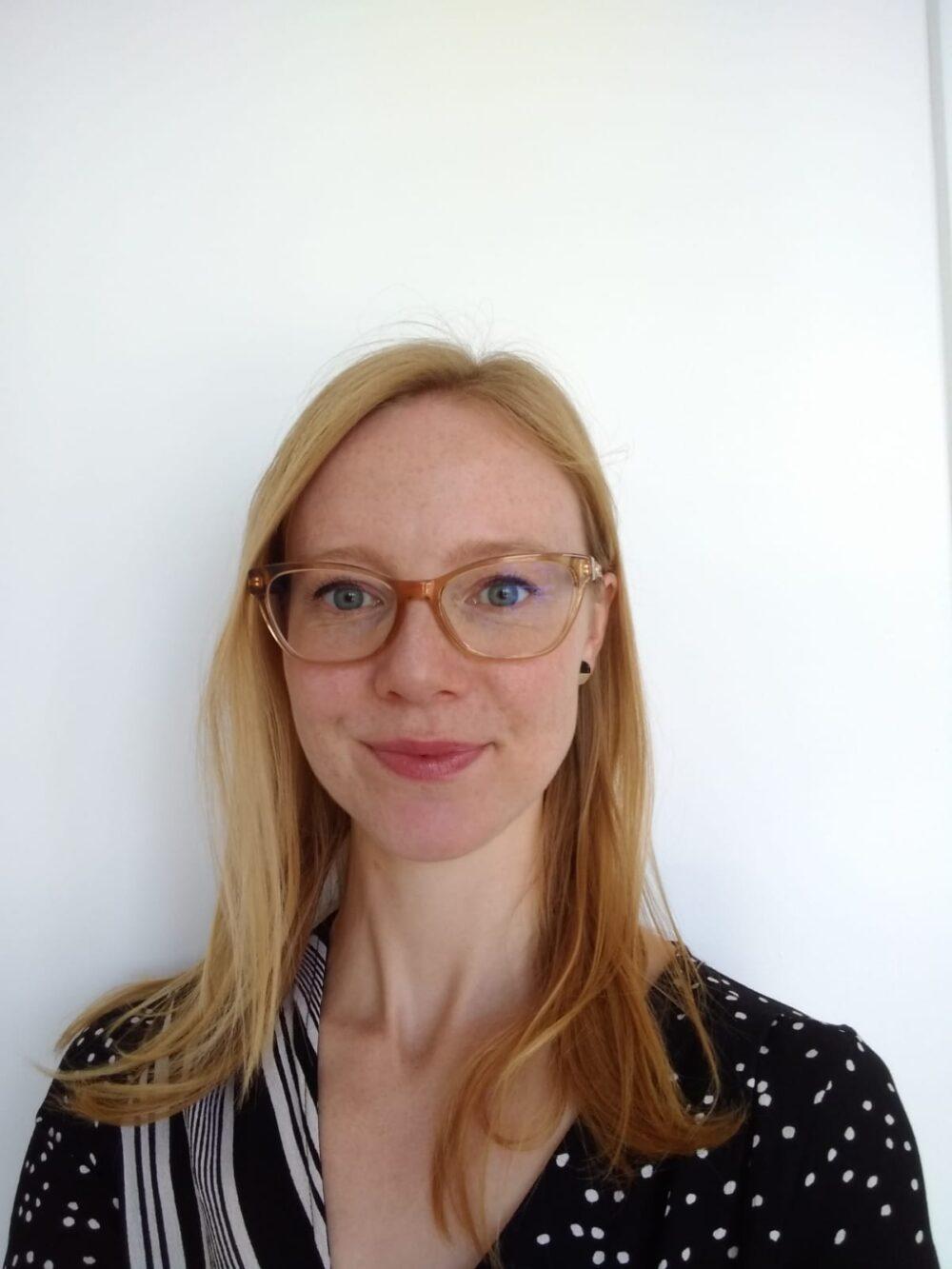
Join our Language Cafe, Kaviarnia, and practice your Ukrainian over a cup of fragrant kava!
At our Kaviarnia meetings, you will be able to practice your language skills, meet other students of Ukrainian, and learn more about Ukraine in a friendly and informal atmosphere. You will also find out more about the Ukrainian Language School at the Ukrainian Institute London.
Sign up to our language school newsletter to be the first to hear about our next Kaviarnia!

Keep up your language learning at home with the help of Ukrainian language resources developed by Marta Jenkala, former Director of the Ukrainian Institute London and Senior Teaching Fellow at UCL SSEES.
Materials providing a taste of what it’s like to start learning the Ukrainian language.
Self-access materials designed to support the acquisition of reading skills in Ukrainian
Supporting the acquisition Ukrainian vocabulary.
A guide to the acquisition of correct patterns of stress in Ukrainian, aimed at learners of all levels from beginners to advanced.
A course of Ukrainian language materials for postgraduate students and others undertaking fieldwork in Ukraine or a Ukrainian-speaking environment, or research requiring work with Ukrainian language speakers or resources.
A resource for English-speaking learners of Ukrainian who have an interest in the law, and for Ukrainian speakers with an interest in English law.